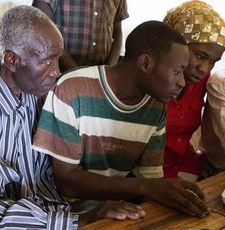ABOUT THE RESOURCE
Libraries across the world are being asked to provide more for less. At the same time, the expectations and needs of library patrons are changing and evolving, and libraries must stay up-to-date with technology to meet those demands. Free and open source software (FOSS) provides up-to-date, adaptable solutions that help libraries meet today’s challenges and stay on budget by investing in staff skills rather than in commercial products.
FOSS is software released under licenses that ensure users always have (1) the freedom to run the program for any purpose; (2) the freedom to study how the program works and adapt it to their needs; (3) the freedom to redistribute copies of the program to others; and (4) the freedom to improve the program and release those improvements to the wider community.
“Free” here refers to the freedom of how the software is used and not necessarily to the price of the software, although FOSS is usually available for download at no cost. Because FOSS is generally available at no cost, it means that with some technical knowledge, a library can implement software that would otherwise cost money. Well-known examples include the Apache Web server, on which the vast majority of websites in the world reside, the Firefox Web browser, the OpenOffice suite, and the Linux Operating System
SHARE / PRINT









